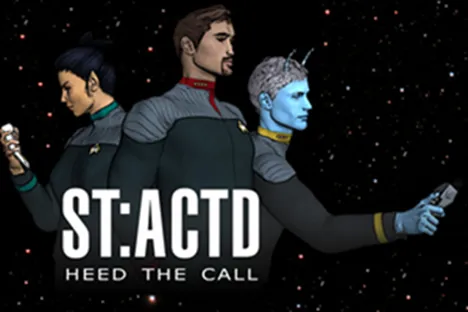Star Trek: ACTD – Intellectual Property Policy
Intellectual property is defined as any intangible asset that consists of human knowledge and ideas. Some examples are patents, copyrights, trademarks and software. Although the law provides for a several different types of Intellectual Property, this game’s concerns center on ideas developed for use in Star Trek: A Call to Duty. The following definitions are taken from pertinent federal statutes:
When used in this agreement, the term “Copyright” shall be understood to mean that bundle of rights that protect original works of authorship fixed in any tangible medium of expression, now known or later developed, from which they can be perceived, reproduced, or otherwise communicated, either directly or with the aid of a machine or device. “Works of authorship” (including computer programs) include, but are not limited to the following: literary works; musical works, including any accompanying words; dramatic works, including any accompanying music; pictorial, graphic, and sculptural works (photographs, prints, diagrams, models, and technical drawings); motion pictures and other audiovisual works; sound recordings; and architectural works. “Tangible media” include, but are not limited to, books, periodicals, manuscripts, phonorecords, films, tapes, and disks.
Star Trek: A Call to Duty (hereafter referred to as “the Game”) has adopted the position and policy that any ideas created for in-game use, including but not limited to Starship Technical Specifications, special game events like Game-wide, Division-wide, Fleet-wide mission arcs, or joint mission arcs are the the property of and copyrighted by Star Trek: A Call to Duty once the intellectual property has been released for game use. Development commissioned by Star Trek: A Call to Duty is owned by the Game from inception, through development and production, and once it is released for use in and by members of the Game. This ownership is irrevocable, and held in perpetuity by the Game.
Permission may be granted to use or to referred to by the Game Owner in writing for use outside of the Game. Such permission is granted on an individual case by case basis and does not revoke ownership of the intellectual property. Unauthorized use of such intellectual property is subject to prosecution under the laws of the United States of America.
Image

| "Assimilation is complete..." The website and the ODN are no longer separate entities. No jumping from one site to the other to get information. We have added to our technological distinctiveness to become one. The process of rebuilding the front-end is still ongoing. Making "a" website... that's easy. Making a website that uses all our content over decades... that's hard. Qatlhqu' tlhIngan Hol |
Former ST:ACTD members are invited to go to "Login" and "Create New Account". A manual verification will be used to verify your membership before you are approved. Any questions/queries/problems, please use "Contact Us".